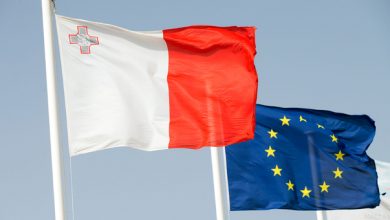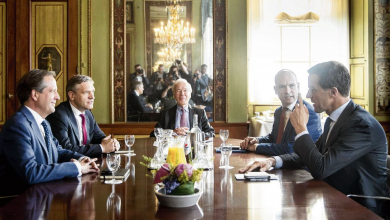Bottom Line: The German Elections Are All About The Money

It’s the economy, stupid. These words first arose to popularity in late 1992. George H.W. Bush had just lost his reelection campaign against Democratic candidate Bill Clinton. The lead strategist for Clinton’s electoral campaign, James Carville, coined this phrase to synthetically explain the outcome: a President who had given the final blow to the hailing USSR, and had defeated Saddam Hussein in what was arguably the most successful military campaign in American history, lost against a young and inexperienced opponent.
People vote with their guts. That’s a truth as ancient as politics itself. And guts are mainly driven by pockets. In 1990-91 America experienced recession and tax hikes, as the administration tried to maintainbudgetary discipline. The President who oversaw all of this may have been the most successful President in foreing policy since Roosevelt, but he got voted away nonetheless.
Why would 2017 Germany be different?
The Federal Republic On A Budget
Well, for a start, there isn’t a recession. The last time the economy contracted was during the Great Recession of 2008-09, and nobody could have blamed German politicians for that. Actually, the GDP growth rate is not spectacular (it swang between 0,5% and 1,9% in the past five years), but it’s in line with other Western countries. The good ol’ times of China-like growth are over, baby.
Furthermore, the budget is maniacally balanced (the budget surplus currently sits at 0,8% of GDP), and the trade balance is in very good shape (+19,5 billion Euros), even if many believe this is because the Euro is weaker than a hypothetical still-existing Mark, thus creating a de facto currency devaluation, which boosts exports by making domestic products more affordable abroad.
Financial investors rewarded these results: the demand for German bonds is so high that the their price has risen spectacularly, leading to negative interests rates. People all around the world are actually paying the German government to keep their money safe.

The German yield curve (the interests charged on bonds relative to their expiration date) in 2015. As you can see, negative interests are charged even for long term bonds.
The Scars Of The Past
Germany is kind of an economist’s heaven – but it hasn’t always been like that. In the 1990s, Germany was closely monitored by international institutions because of problems linked to the (costly) reunification precess and other economic imbalances, such as slow growth and trade deficits. There was even a mild recession in 2003. But the Hartz reforms (2003-04), enacted by a SDP-Green government led by centrist Chancellor Gerhard Schroeder, liberalized the job market and gave an impressive boost to the economy. Also, negotiations between businesses and unions were mainly conducted at a local level, due to the federal structure of the country: the unions’ bargaining power was weakened, and wages were kept low, decreasing labor costs. Productivity rose, and since then the Mitteleuropa giant shadows everyone else.
The problem is not the aggregate, which is doing just fine. It’s the differences that country-wide statistics hide: Germany is actually very unequal. This inequality develops along two axis.
First, we have the geographical axis: as you can see in the chart below, there is a strong difference in GDP-per-capita and uneployment between Eastern (former Communist) and Western states. It’s mainly caused by the economic distortions, such as a history of low labor productivity, inherited by the DDR, the former Communist dictatorship composed by the present Eastern States.

Datas in Euros (left) and percentage points (right)
Second, there’s the wage axis: the famous Hartz reforms of 2003-04 created a lot of low paid, part-time jobs (or “minijobs”), that helped keep unemployment low, but increased inequality. In fact, during the last years real wage growth has been positive only for higher wages, but null for mid-sized wages and negative for lower wages. This actually follows a trend similar in many Western countries, but unlike for the Great Recession, German voters find it much easier to blame their politicians.

Income inequality has widened recently, and more Germans are considered at risk of poverty.
Discontented Affluence
How are the main parties positioning themselves on these themes?
The CDU-CSU, obviously, is taking credit for it. It was the main party of government during the whole economic expansion, even though it didn’t start it. Voters across the demographical spectrum agree: from students to pensioners, the majority of Germans seems willing to give Frau Merkel another four years in power to further consolidate the gains.
The SPD, instead, finds itself in a very uncomfortable position: it cannot take credit for the consequences of the Hartz reforms, because it would alienate its historical low-income electorate, which is suffering from the aforementioned inequalities, but neither can it distance itself too much, because it was the party that enacted them in the first place and because it joined the CDU in a coalition for a total of eight years (2005-09 and 2013-17). Martin Schulz, the party candidate, decided that the lesser of two evils would be the latter, thus building a leftist narrative in his campaign, pushing for higher wages and more investments, which are currently very low. However, voters are not rewarding him: the SPD is currently trailing in the polls by more than ten percentage points.
The parties at the opposite extremes, AfD (populist right) and die Linke (populist left), are both very strong among the Eastern States. Frustrated Eastern Germans see them as anti-establishment alternatives that can expose what they perceive as the faults of a capitalist, open-border economy.
The Greens are findind it difficult to have a strong, coherent economic platforms, since they have traditionally focused on less mainstream topics, such as the environment. The FDP (liberals), instead, see the German State as too active in the economy and are pushing for a massive tax reduction.
However it may go, it seems that old, dirty money will be the kingmaker once again.
External contribution by Federico Bindi






One Comment